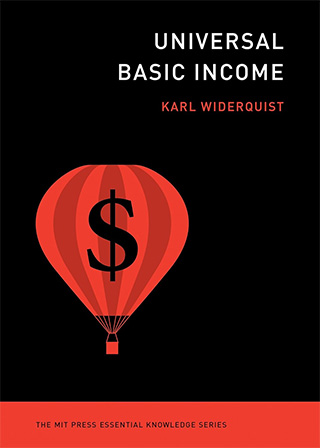The Fatal Trap UBI Boosters Keep Falling Into

The general idea behind universal basic income (UBI) is almost as old as America itself. You can trace it back to 1797, when Thomas Paine argued for guaranteed payments in his political treatise “Agrarian Justice.” Fast forward to 2020, and Andrew Yang revived the idea with a “Freedom Dividend” during his failed presidential campaign. Despite the 200-plus-year chasm that separates these two men, the criticism they faced for backing UBI was strikingly similar: that “no one will work” and that “we can’t afford it.”
Because of this, supporters of the program might be tempted to believe that the purpose of UBI experiments is to allay these concerns with empirical evidence on the effect of UBI on work hours. The problem, however, is that these concerns are not rooted in empiricism but normative belief: namely that 1) lower-class people who refuse employment should receive nothing and 2) UBI costs more than it’s worth. And while not all UBI opponents believe these things, those who are often move the goalposts to portray almost any findings about cost and labor effort as reasons to reject UBI.

We must resist playing this game.
UBI-related experiments consistently find evidence that no participant responds to UBI experiments by dropping out of the labor force. Yes, some people reduce their hours of work, but the decline in work effort (if any) is clearly within a sustainable range. In other words, the evidence decisively contradicts claims that “no one will work” and “we can’t afford it.” But if we take the bait of focusing on such extreme statements, we attract everyone’s attention to opponents’ favorite issue: “Did the people who got the UBI ‘work’ as much as the people who didn’t?” Once the question is framed this way, it tosses a softball to opponents who predictably argue UBI is out of the question because some people didn’t work as much as they otherwise might have.
Any unconditional grant large enough to live on necessarily allows lower-class people to refuse employment. This fact — at least for critics who feel that people who refuse employment should receive nothing — makes UBI undesirable by design. To them, UBI will always be “unaffordable” because it will appear to cost more than they think it’s worth. UBI supporters fall into their trap if they attempt to refute this belief with, say, technical explanations of the difference between a 4 percent decline in labor hours and 4 percent of people leaving the labor force.
Supporters need to focus on all the good that comes of guaranteed income. As Bru Laín argues, UBI has a “positive impact on socioeconomic indicators related to a lack of money,” including the “alleviation of stress and mental illness, improvement in eating habits, settlement of household and personal debts, improvement of happiness, subjective well-being and social and community participation.”
Instead of trying to assuage critics’ fears, the pro-UBI movement needs to challenge the narrative in which any refusal to accept employment is a “bad” experimental observation.
Meanwhile, proponents of UBI that fall headfirst into critics’ trap even when they point to findings that that UBI increases labor effort. Consider these headlines from a UBI experiment in Stockton, California: “Experiment in guaranteed income leads to more work,” “Californians on universal basic income paid off debt and got full-time jobs,” and “The Biggest Payoff From Stockton Basic Income Program: Jobs.” Even the city’s mayor, Michael Tubbs, who was instrumental in establishing the program, employed this kind of rhetoric, saying, “Number one, tell your friends, tell your cousins, the guaranteed income did not make people stop working, in fact, those who received the guaranteed income were working more than before they received the guaranteed income and almost doubled in increase compared to those in the treatment group.”
The results Tubbs points to are largely determined by the design of the study: People who receive small grants when they weren’t working very much to begin with usually work more in UBI studies; people who receive larger grants when they are working full-time to begin with often work less. By portraying the uptick in Stockton’s labor effort as self-evidently good, Tubbs’ comments make it more difficult for future experiments that might involve larger grants to report the likely finding that people work less. Buying into the narrative that it is always “good” for low-income people to spend as much or more time on paid labor than they are now is a game UBI supporters can’t win and shouldn’t play. If the biggest problem in the world today were getting the lower class to work as much as possible, UBI would not be the best policy to achieve it.
Instead of trying to assuage critics’ fears, the pro-UBI movement needs to challenge the narrative in which any refusal to accept employment is a “bad” experimental observation. After all, how could it be a good thing for the global poor to spend more hours in grueling jobs for which they’re likely underpaid and overworked? What do you think will happen to wages and working conditions if the two billion people in deep poverty around the world all decide to work more at the same time? Theory predicts they would work longer hours for lower hourly wages.
One of the many disadvantages of UBI experiments is that they cannot measure how much wages and working conditions might improve in response to a substantial UBI, because that effect depends on the interaction between millions of citizens and employers across the country. The closest thing UBI experiments can measure is the first step in the process, and that step involves giving people a choice beyond working too hard for too little. So, rather than trying to quibble over hours worked, UBI supporters might have better luck broadcasting the good that comes when people with the worst jobs decide to work less — and using experiments as a platform for participants to tell their stories.
Karl Widerquist, a professor of philosophy at Georgetown University-Qatar who specializes in distributive justice, is the author of “Universal Basic Income.”



